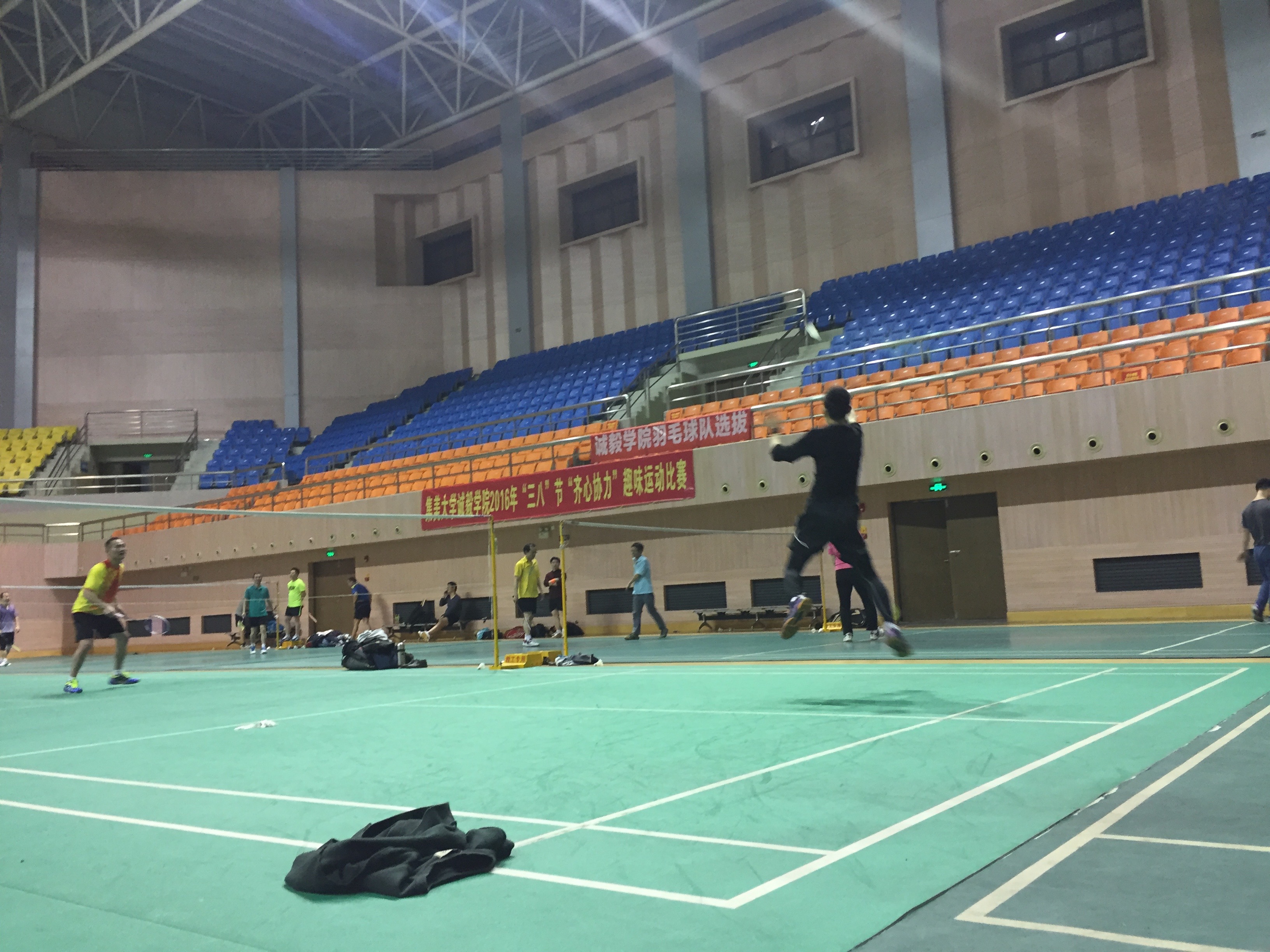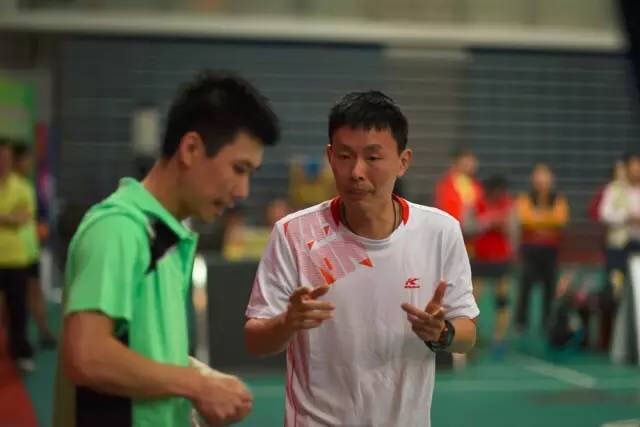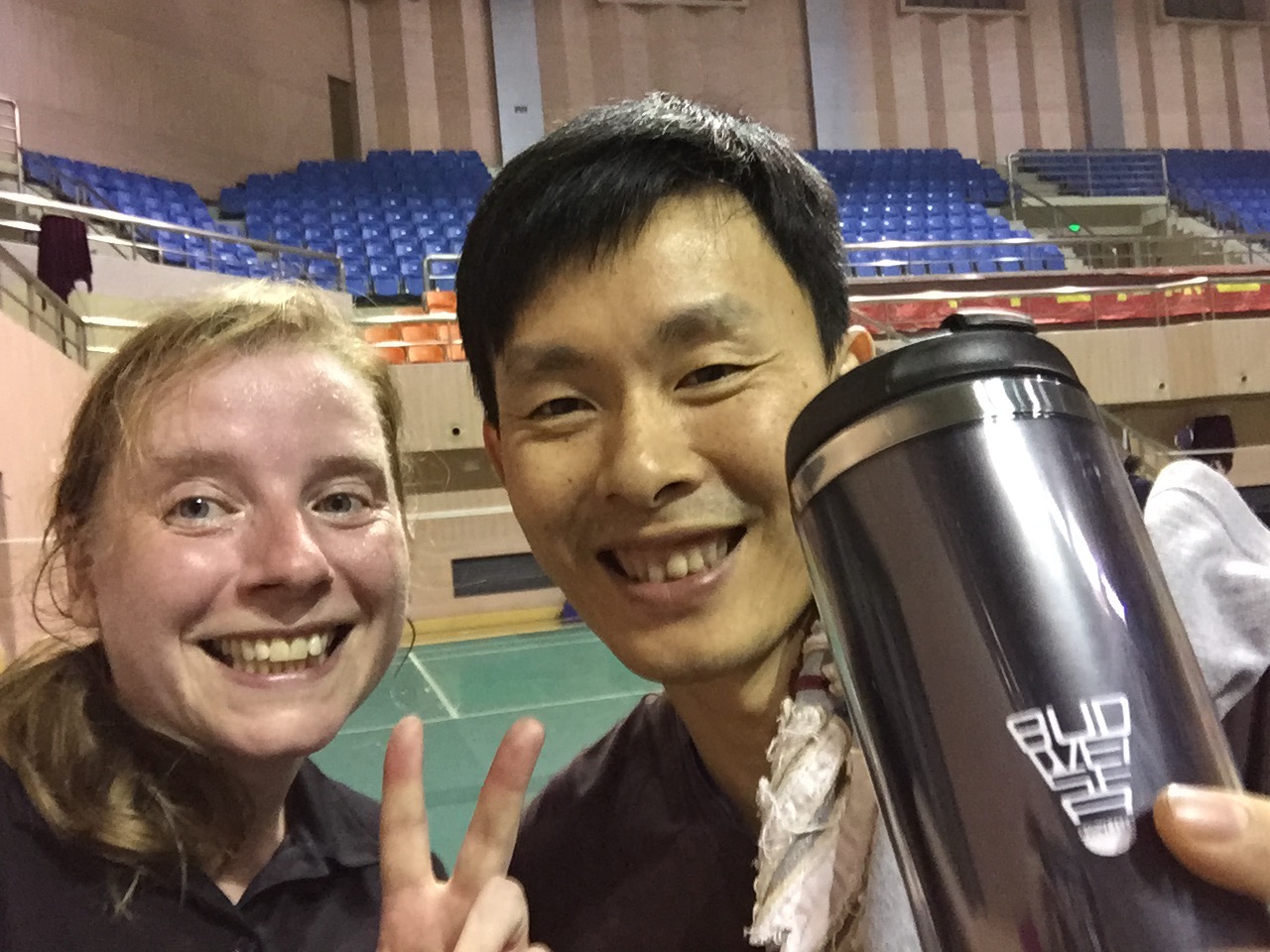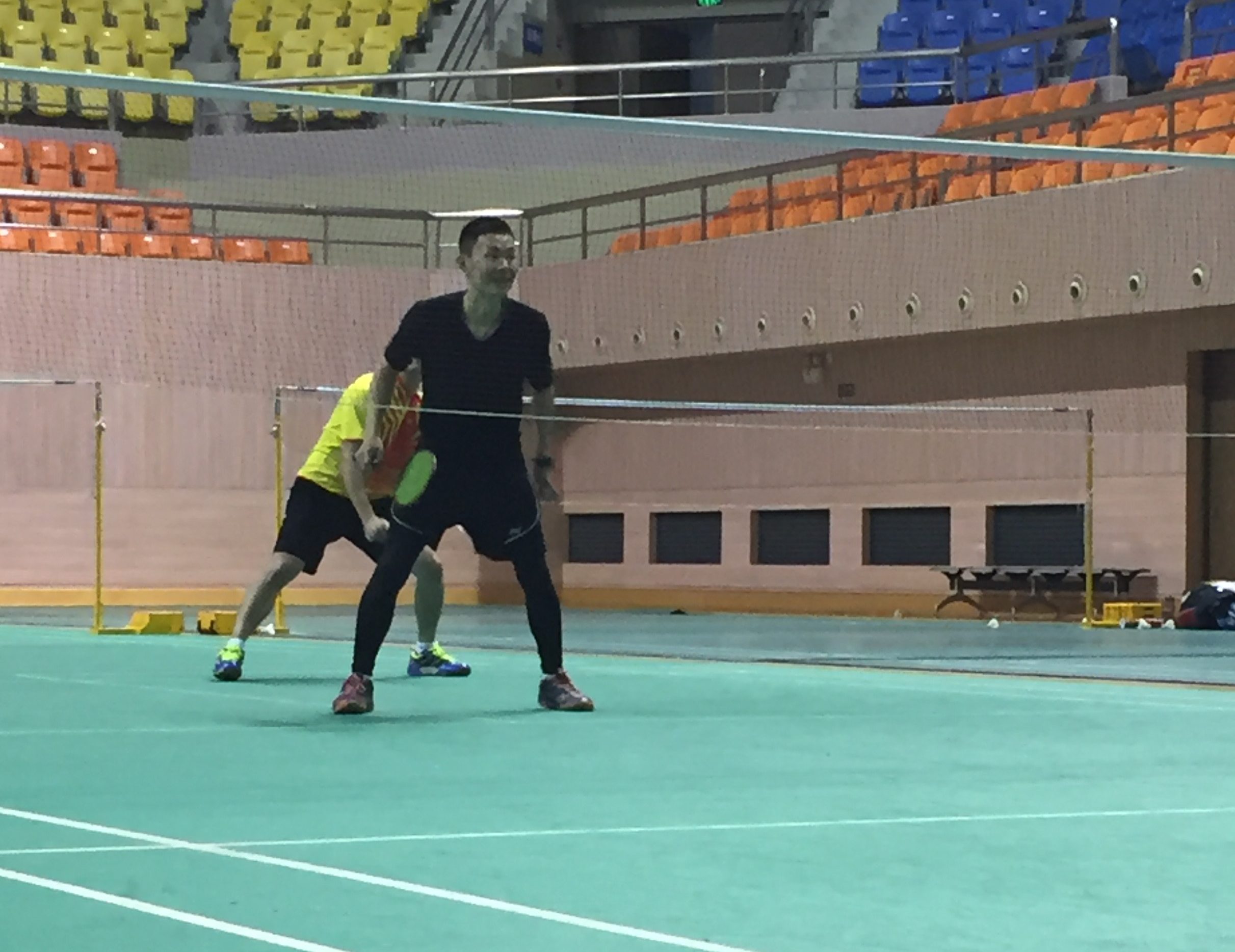Get me to start talking about badminton and within the first minute I’ll gush about my super awesome coach who’s the greatestthinginthewholewideworld.
We’ve only had four months of class and I know very little about him personally. I know he’s married and has a kid, but only because of his pictures on his wechat. I didn’t even know his job until a few weeks ago when a mutual friend told me he owns a shop. I know his favorite sport is badminton, but not his favorite food. Conversely he knows nothing about me except that I love badminton and teach English. He doesn’t even know I write this blog.
But now he’s one of the most important people in my life. Seriously, his opinion affects me disproportionately to my life and the other people in my life. A high-five from him? I freak out with excitement. A slightly disappointed shrug, my whole night is ruined. For the first few weeks I had diarrhea before each class because I was so damn nervous and intimidated by his ability and reputation. (TMI?) It just shows even from the beginning he affected me.

My coach (in black) is not just a coach, but one of the best players in Xiamen. I love watching him play games and so do other people. By the time his game is finished he always has at least 8-10 people watching.
I felt surprised by my immediate devotion to him so I looked into the psychology of the coach/player relationship. Turns out there isn’t a ton of data, but enough to confirm my suspicions and back up some of my feelings.
Both performance enhancement as well as psychological well-being lie at the heart of the coach–athlete relationship. -From Understanding the Coach-Athlete Relationship.
Of course some athletes naturally have an unwavering confidence, providing the unique self-belief which enables them to perform under immense pressure, while also (importantly) avoiding complacency, but unfortunately this is the exception, not the rule. Most athletes that progress to the highest echelon of a particular sport will do so as a result of a collective (athlete and coach) commitment to developing both the physical and mental elements that encompass performance. –Psychology Today
These quotes nail it right? As I’m discovering sports is way more than just a physical thing. It’s totally mental and as a player I have basically surrendered my mental and physical well-being into my coaches hands.

At a recent tournament my coach helped out his teammates. His team is famous for being the best team in Xiamen and sometimes even gets pro players to play for them.
That’s a big responsibility and thank god my teacher is a nice guy. He’s not super strict or demanding, but insists on perfect form and keeps at me until I do it right. He gives me a lot encouragement like “good shot,” “nice one,” etc., but he’s also very honest. He doesn’t say things like “You’re so good,” because I’m not. And when we play a game he blurts out the first thing he thinks when I miss a shot. Like, “No! You’re not moving your feet together!” or “Too slow!!” and then one second later he feels a bit remorseful and adds quietly, “But don’t worry about it.” I love his unconscious outburst. They are honest and help me improve. Plus every now and then he’ll blurt out a “Yes!” or “Good job,” and I know he means it.
Effective coach–athlete relationships are holistic in that the emphasis is placed on positive growth and development (i.e. ‘to be the best you can be’) as an athlete/coach and as a person. Effective relationships include basic ingredients such as empathic understanding, honesty, support, liking, acceptance, responsiveness, friendliness, cooperation, caring, respect and positive regard (e.g. Jowett & Cockerill, 2003; Jowett & Meek, 2000). – British Psychological Society
We only speak Chinese and you would think that would lead to communication problems. I’ll admit, it has sometimes. But we’ve slowly realized we have a lot of personality similarities which translates to better understanding of each other. Like our competitiveness. he’s not training me to play, he’s training me to win, because that’s what I want and he knows it. He also doesn’t discourage me from playing with better players. He knows I’ll lose, but he also knows that I need a challenge to push myself. If I play people at my level or lower, I don’t do well.
He also gets my feelings. When I was really down the other week, he picked up on it without me saying anything. Some friends tried to cheer me up but their words rang hollow. He contacted me later that night and after talking it over with him I felt much better. His simple words cheered me up better than my close friends encouragement.
But I think it was more than that. I think part of me was sad/mad that I disappointed him. I was a bit nervous that if I fail in front of his friends it reflects poorly on him. Like, he would be annoyed that he has spent so much time teaching this sucky girl. I guess I was embarrassed. But through his chatting I realized that wasn’t the case and that, more than anything, cheered me up. I fail and fail in front of him, and instead of laughing or judging me, he accepts it and continues to teach me. I think that’s important.

I’m no passive party in all this. I know I’m forcing my coach into an uncomfortable situation. As we get closer empathy grows. Like me and some of my students, their struggles become my struggles, their heartbreak and problems become mine to help solve. By telling him my insecurities and problems (instead of keeping it a secret) I’m almost forcing him to empathize with me. I’m doing the harder physical work, but emotionally I’ve gotten him to join me.
I hope he is getting something more out of our relationship then just a little bit of money. I’m gonna go out on a limb and say he is. After all, I’m a teacher so I know what it feels like from the other side. But when you don’t have a lot of confidence sometimes you assume it is one sided. But last week he told me this:

“I feel pride because of you.” My brain basically exploded at that point. All I have wanted is to not disappoint him, but to make him proud feels amazing.
All this sports stuff is new to me. I’ve seen these kinds of things on TV shows and movies, but to actually have a coach, and actually work towards a goal of improving a lot quickly, is something new for me. This kind of dynamic is new to me. And I look forward to see what will happen to me in the future. (And I’ll blog about it again I’m sure.)







